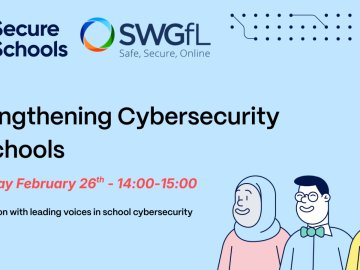In the wake of the recent events that are currently taking place, the rise of online extremist and racist content has become more apparent across social media, forums and discussion groups. What is currently taking place across the country may be causing considerable distress towards children and young people right now and the risk of being affected by harmful online content relating to the current situation is a concern that parents, carers and professionals need to be aware of.
Young people will understandably be curious about what is taking place and may question the motives behind why a situation has unfolded. It’s important to support them throughout this time, understand that it may be extremely upsetting for them and use the opportunity to provide them with the skills needed to appropriately respond to what they may be witnessing online.
We have outlined some key points in how to approach online extremist content with children and young people, developed by the Professionals Online Safety Helpline.
Don’t Ignore What is Happening
Choosing to ignore the current events may shield awareness in the short term but it is likely that the information will still reach young people through their own use of technology and conversations with others. Take the opportunity to start the conversation and show them you are aware and available to support. Create a space where you can share your opinions and openly discuss the situation and your feelings around it.
Encourage Critical Thinking and Discussion
With the rise of misinformation and hate speech online, empowering young people to critically evaluate online content and feel confident enough to discuss it with an adult can help them navigate the current situation with a sense of authority. Discuss the ways in which information may be misleading and used for the purposes of harm.
Highlight the importance of fact checking and show how online content can be crafted to persuade and mislead the public through opinion-based wording, ‘clickbait’ language and the use of hidden agendas. Support them to make rationale decisions about what they see online and reaffirm that not everything they read will be correct or reliable.
Reinforce Your Protections
Schools in England (and Wales) are required “to ensure children are safe from terrorist and extremist material when accessing the internet in school, including by establishing appropriate levels of filtering”. It is essential to ensure that IT systems are protected by appropriate levels of filtering within the school and home setting. If you are concerned about material being accessible online, you can use testfiltering.com to determine how robust your filtering systems are.
If you are within a school setting, it is important to ensure your staff are fully trained on how to respond to extremist material. This includes recognising what this content looks like and ensuring that they can educate around critical thinking towards their students.
The Power of Reporting
Although content may seem upsetting, empowering ourselves to take a stand against upsetting, harmful and illegal material online can take the power away from those who promote it. If your communities, witness or are affected by online material that promotes terrorism or extremism, it can be reported to the Home Office anonymously.
If you encounter online abuse, bullying, harassment or violent content, you can report it at reportharmfulcontent.com. If you encounter hate crime, you can report it at True Vision
Further Support
If you are concerned about a child’s wellbeing or their response to the current situation, always keep lines of communication open. If you are in a school setting, inform your designated safeguarding lead or refer them towards emotional support services such as Childline.
You can also use the Professionals Online Safety Helpline for further guidance if you are having to respond to a specific situation involving a student. Referring to Action Counter Terrorism can also support in acting quickly if you are concerned about someone expressing extreme views or hatred.
Carmel Glassbrook Professionals Online Safety Manager said: '‘Events that are currently unfolding are unsettling, but it is important for professionals and parents to use this as a positive opportunity with young people, to educate around the importance of discussion, critical thinking and support during this time. The Professionals Online Safety Helpline can offer guidance around how to navigate these scenarios with young people and can provide appropriate advice around how to strengthen your approaches towards harmful online content.''






